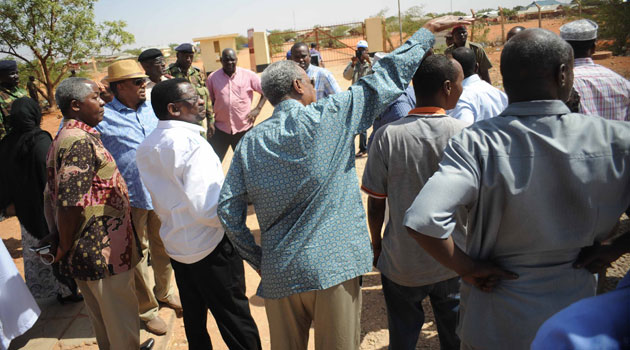NAIROBI, Kenya May 19 – A team of devolution experts led by Auditor General Edward Ouko has recommended that Senators be elected by County Assemblies in order to reduce the ego battles between Governors and Senators.
The Social and Economic Audit Working Group member Abdirizak Nunow says there is no evidence that Senators are performing their mandate due to bad relationships with the Governors.
“Amend the Constitution to remove direct election of Senators. Instead, Senators can be elected from among the County Assembly members or Senators can be elected by constituent assemblies constituted in counties,” he said.
The Ouko led team is also proposing the number of County Wards to be reduced by half to cut the number of MCAs from the current 2,400.
The report also wants Parliament to enact legislation to enhance the role of the Senators as representatives of counties and county governments.
Susan Mang’eni presented the audit on the Judiciary and independent commissions audit and noted that there is a duplication of roles among some independent commissions and proposed they be merged in order to cut on the rising wage bill.
The social economic audit team raises concerns over value Kenyans are getting from various independent commissions.
The Office of the Auditor-General now proposes that Kenya National Commission on Human Rights (KNCHR) whose job is to point out human rights abuses be merged with National Gender and Equality Commission (NGEC) and the Commission on Administrative Justice (CAJ).
The report views the three commissions are undertaking the same mandate and hence the value for taxpayer’s money in retaining the three commissions as individual entities was questionable.
“With respect to duplication of roles, the genesis of each of the entities should be visited and their separate existence justified. if not, they should be merged,” she said while citing the recurrent wrangles between the Ministry of Land and National Lands Commission (NLC) and the one pitting the Ministry of Education and Teachers Service Commission (TSC).
National Assembly Appropriations and Budget Committee Chairman Mutava Musyimi said the similar report will be done in five year cycles to provide the country and legislature with the necessary information and analysis on potential measures that could enhance prudent management of the country’s public resources.
“One of the questions I would have liked to hear is are Kenyans over represented and do they get value for that representation because they are represented by their president, by their Deputy President. They are represented by their MPs (in the National Assembly and Senate), by their Governor and Deputy Governor and then by their Members of the County Assembly and County Women Representatives.”
He said the House Committee was taken aback by some of the working group’s findings and directed the Parliamentary Budget Office to submit an analysis of the report by June 30.
The report revealed that the core government wage bill of GDP ratio (national: county) rose marginally from 6.6 percent of GDP in 2012/13 to seven percent in 2013/14. It is projected to fall back to 6.6 percent in the current fiscal year and remain at 6.6 percent.
Musyimi said the committee was alarmed by the working group’s observation that the overall public wage bill including parastatals also rose marginally from 9.6 percent of GDP in 2012/13 to 9.9 percent in 2013/14, but is projected to decline to 9.2 percent of the GDP this year.
“I made the comparison between the wage bill with respect to the counties, which is 4 percent of the GDP and the wage bill in parastatals which is about 3 percent. Now that is frighteningly high. This Committee must of necessity put focus to this, because I didn’t know until today that the wage bill of the parastatals is one percent lower to GDP than wage bill that goes to county governments,” Musyimi stated.
Kenya’s Gross Domestic Product (GDP) rose by 25 percent to Sh4.76 trillion following the government’s rebasing (new formula to calculate GDP) of the economy from the previous Sh3.8 trillion (which was rebased in 2001).










































